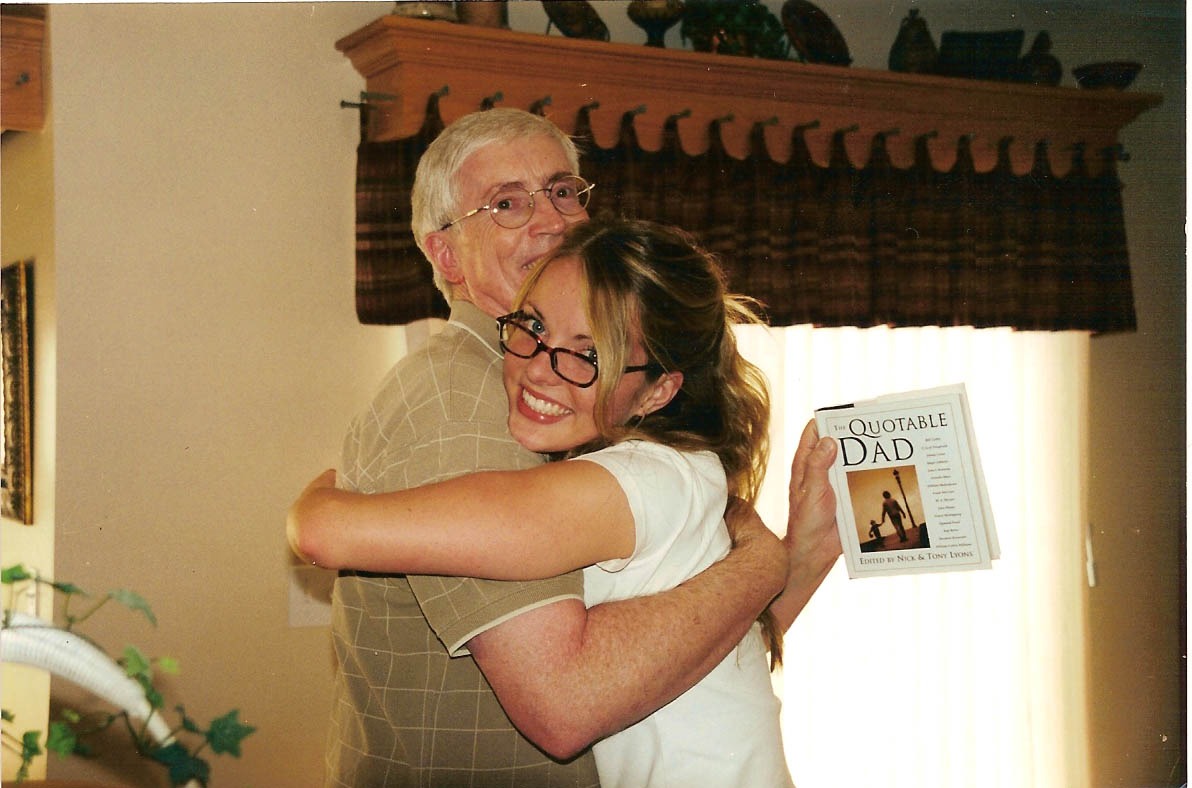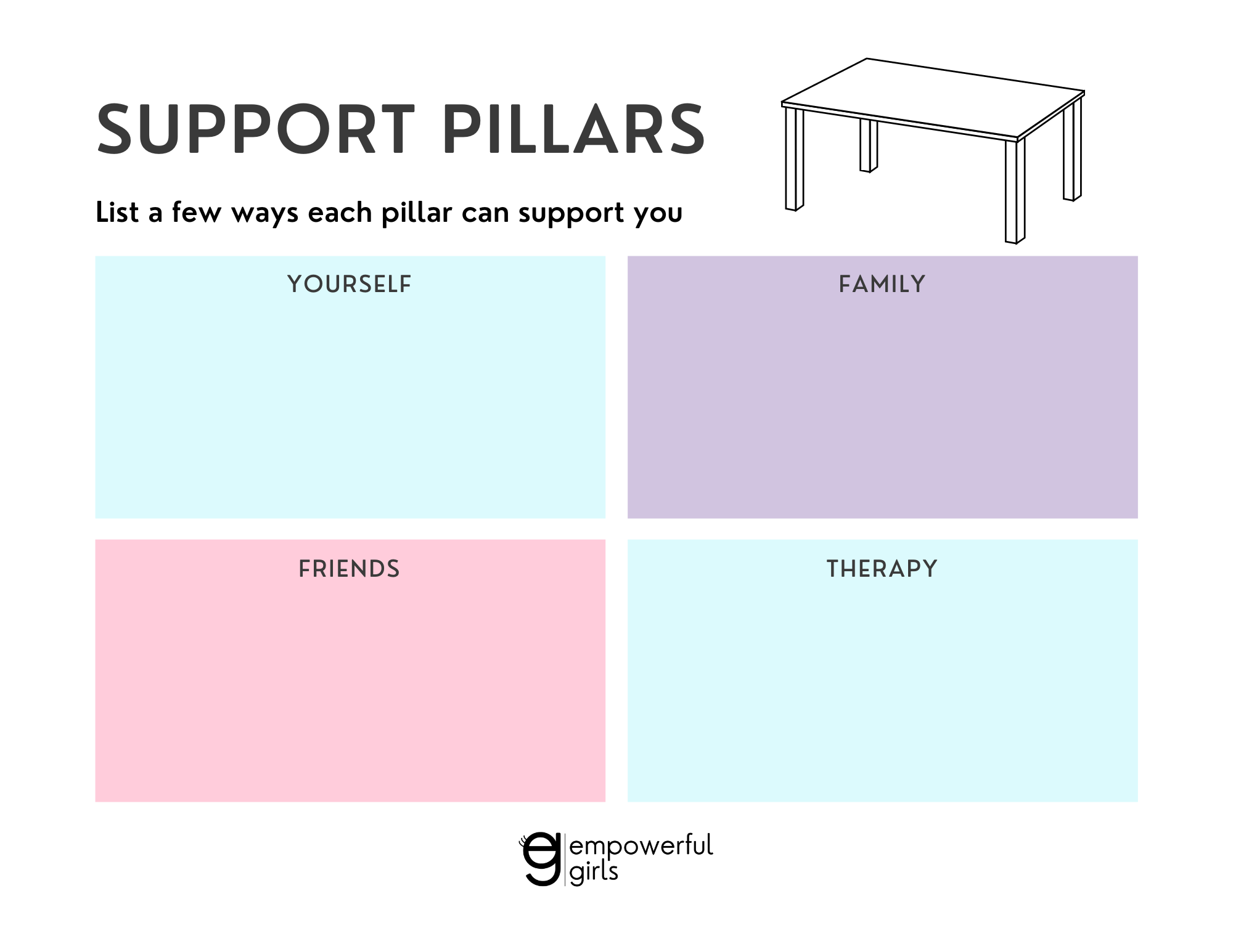
FYI
It’s been a bit since the last episode. I actually want to talk about what’s been going on because multiple girls have requested an episode on this topic. Before I begin, I want to provide a content warning as I will be discussing dealing with a family illness, as well as coping with the death of a loved one.
My Dad
My dad first got really sick when I was 5 years old. I didn’t understand then what was going on – why he was in the hospital, why he had to stop working, why we had to sell our house and move to a different one. But he eventually got better and life went back to a new normal for a few years. Then when I was 10 he got really sick again, and I was now aware enough to start wrapping my head around what was going on with him and the impact it had on my family. This time when my dad had recovered, my parents decided we would move out of state to be closer to extended family – I talked about this in-detail in episode 25. Since that move, over the next 30 years, my dad fought so many health battles that I lost count of how many times he got really sick again. Over his lifetime my dad likely spent hundreds of days in hospitals, but somehow even when we weren’t sure if he’d make it, time after time he defied medical odds and got better. He even recovered from Covid this past December. Talk about resilience.
Over these last few years my dad developed dementia, which affects memory and brain functions. His body also lost its ability to do certain things. It was hard to see my dad fade both mentally and physically. A month ago my dad got badly injured, and he passed away shortly after. Even with his many illnesses over the years, I thought I’d be prepared for when he died. But it was still heartbreaking and I miss him so bad. So I want to share with you my thoughts on what helped me deal with a family illness and cope with the death of a loved one.
Pillars of Support
I want you to picture a sturdy table. How many legs does a table have? Usually four, right. The four pillars support the table and hold it up. You are like a table, and you need support – especially during difficult times. So here are my four legs or pillars of support:
Support Yourself
First, and most importantly, you need to support Yourself. The other three legs/pillars are definitely helpful, but there are certain things that only you can do to support yourself. It’s not selfish, it’s self care. And if you’re like me, you may be inclined to first support others who are struggling and put yourself last. I’ve said it before: you can’t pour from an empty cup, or in your case, your phone won’t work if the battery’s dead. You need to do things that refill you and recharge you, then you’ll be able to pour into others’ empty cups.
Here are ways to support yourself:
- Allow yourself to feel. You don’t have to hold it all in and put on a brave face. Like a shaken bottle of soda, you’ve got to release the pressure. Write out your feelings, listen to cathartic music, move your body, cry – whatever combination you need and however often you need, let your feelings out.
- Show yourself compassion. Treat yourself with the same kindness and understanding that you would show to a friend if they were going through what you’re going through.
- Sleep. It’s so underrated, but if you’re not getting enough sleep, it can throw off so many other things in your life. If you’re having a hard time sleeping, help your body prepare to sleep, like no more screens at least an hour before you want to be asleep. Charge your devices in a different room so you’re not tempted to check your phone and so you don’t get disturbed by notifications. Dim the lights, soak in a bath, turn on calming sounds or music, or a guided meditation. Do breathing exercises. Wear a sleep mask and/or ear plugs to minimize disruptions. If you wake up in the night, do NOT check the time or grab your phone. Repeat those ideas I just shared to help yourself fall back asleep.
For more ideas on how to support yourself, check out these previous episodes:
- What You Can Control • ep. 02
- Manage Stress • ep. 15
- Cope with Change • ep. 20
- For When You’re Sad • ep. 21
- Self Care for Stress • ep. 30
- Puberty pt. 4: Emotions + Healthy Habits • ep. 46
Family Support
The next pillar of support is Family. Now I understand we all have different family setups and relationships. Sometimes the situation is complicated; I get it. But even if you have just one family member, where you both can lean on each other during this difficult time, that can make a big difference. There is something comforting about knowing you’re not alone while coping with what’s going on. I think of it like you’re in different boats caught in the same storm. Your different boats represent how you each will experience different emotions, a different grieving process, and different timing healing. But you understand what the other is going through because you’re in that storm too. You can offer each other compassion, provide a safe space to exchange emotions, and extend genuine acceptance wherever you each are at in your grief. My siblings have been absolutely essential, still are honestly, and I’m deeply grateful we’ve been able to support each other through this.
Friend Support
The third support pillar is Friends. I talk about friendships A LOT, and that’s because especially during your tween and teen years, friendships are incredibly important and strongly influence the young adult you’re becoming. Having even just a few solid friends, where you know you each have each other’s back, can be really helpful as you work through tough times. Your friends can support you with empathy and compassion. Continuing the analogy, they can join you in your boat in that storm and help you feel anchored so you’re not getting tossed around. They can let you know they care, they are here for you, and they want to help. You may even have a friend who experienced a similar situation and can offer a helpful perspective. I have a few friends who shared with me that they also lost a parent, that it was rough, and also let me know that it gets better. I really appreciated knowing I’m not alone, that I’m seen. I’m so grateful for each of my friends who reached out to me and allowed me to lean on them for support. That’s why they say it takes a village, right?
Therapy Support
All right, the final pillar of support is therapy. I talk openly about mental healthcare because I have seen how helpful it has been for me and others. And if you are dealing with a family illness or coping with the death of a loved one, therapy can be very effective. Typically each therapy session lasts just under an hour, and you go as many times as you need. There are different options that each offer their own benefits. Individual therapy is a one-on-one session with a therapist, family therapy is multiple family members attend the session and process their shared situation with the therapist, and group therapy is a session with other people, like a group of teens who have similar experiences or emotions and the therapist leads the discussion. There are different types of therapy, like psychotherapy, cognitive-behavioral therapy–CBT, eye movement desensitization and reprocessing–EMDR, etc. Therapists customize the treatment plan for each client’s specific situation and needs, and work through it over the course of their sessions. Now some people think that because they have support from family and friends, it covers what therapy would offer. But licensed mental health professionals have the proper training and tools that help in different ways than family and friends can. Those two are still valid, remember how a table works, each leg offers its own support and all four pillars are important: yourself, family, friends, and therapy.
Whatever you’re going through right now, I’m so sorry that this is hard. I really hope that this episode has helped you feel seen and maybe given you some ideas or clarity. It’s OK not to be OK, and remember you don’t have to hold the weight of the whole table up by yourself; you don’t have to go through this alone, you can lean on your support pillars to steady yourself.
Support Pillars Poster Printable
To help you with this, I created a “Support Pillars“ poster for you to print out, personalize, and post on your wall where you’ll see it, remember it, practice it, and believe it — that’s the important part.
More on coping with illness + loss:
You may also want to check out:
Books:
Treasures of the Tide, Lucy Mettler
Where Do Balloons Go, by Jamie Lee Curtis
The Invisible String, by Patrice Karst
One Wave at a Time, by Holly Thompson
Resources
If you have a topic suggestion, I’d love to hear from you! Send an email (tweens get the OK from your parents) to hello@EmpowerfulGirls.com .
If you have social media already, follow me on Insta or tiktok @empowerfulgirls. I’m not encouraging or endorsing social media, but I’m on there to offer an unfiltered, uplifting alternative to what’s in your feed. Remember to get on the email list for the newsletter!
Also, if you enjoy listening to 10 for Teens + Tweens, I would truly appreciate you telling your friends about this podcast or leaving a review so others can find it and feel uplifted, too! Your support means the world to me!
